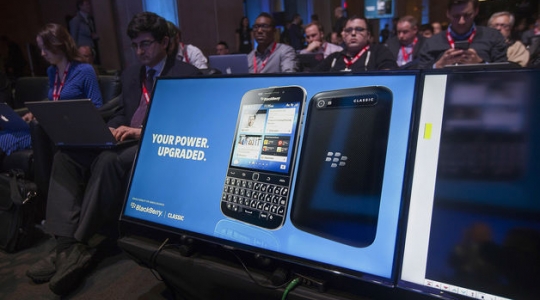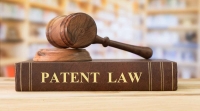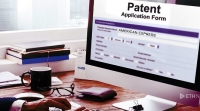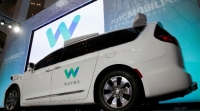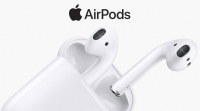BlackBerry Ltd. (BBRY)’s patent portfolio holds two key allures for any acquirer: security and basic wireless technologies.
Those are among the prime pieces of intellectual property held by the Waterloo, Ontario-based mobile-technology company. Reuters today said BlackBerry and Samsung Electronics Co. (005930) held deal discussions spurred by a desire to obtain the Canadian company’s patents, a report that both companies later denied.
Still, the report puts BlackBerry’s patents in the spotlight. The company has a combination of older patents on the basic functioning of a mobile phone, as well as newer ones on security and on consumer-friendly features such as predictive typing on a keyboard or setting up meeting schedules.
That’s a treasure trove for any potential buyer because security is becoming more important to companies that are trying to avoid the type of hacking that struck Sony Corp. (SNE) last year, in which numerous e-mails and personal information of employees were disclosed. Many of BlackBerry’s patents underlie the fast-growing mobile industry, where lawsuits over basic technologies have been abundant.
BlackBerry has about 44,000 patents worldwide, said Desmond Lau, an analyst at Toronto-based Veritas Investment Research Corp., with any buyer likely to be most interested in the ones related to security technologies.

“People talk about it having great stuff in it,” said Ron Epstein, chief executive officer of patent brokerage Epicenter IP Group LLC in Redwood City, California. “When I’m looking at the technology and saying do I want that in my product, I can buy yours or I can develop my own.”
Patent Benefits
For Samsung, security patents would help it expand into lucrative government contracts and corporate customers. Mobile-technology patents more generally also could help winnow down any money Samsung might have to pay Apple Inc. (AAPL) in the long-running smartphone wars. The companies have dropped all litigation outside the U.S., with two U.S. appeals court cases pending that would help determine the value of patents on unique features of complex devices. Some of the BlackBerry patented features and operating system, if licensed to Apple, could lower any licensing costs for Suwon, South Korea-based Samsung.
Patent Builder
BlackBerry typically ranks in the top 75 annual patent recipients, obtaining 500 to 1,000 patents every year on improvements to its mobile devices, according to U.S. Patent and Trademark Office figures.
Among the patents it received just this month are ones that cover secure message handling, a new type of keyboard, smartphones that can measure magnetic fields and e-mail filters. Other recent patents include ones for a display that’s less likely to shatter when dropped, allowing the collaborative editing of media on different devices, and ways to control household appliances through a smartphone.
The company has also built up the portfolio through at least one acquisition. In 2011, the company was one of six that agreed to pay a combined $4.5 billion to buy more than 6,000 patents from Nortel Networks Corp.
Apple and BlackBerry cite each other’s technology in patent applications more than any other two North American device makers, MDB Capital Group LLC, a Santa Monica, California-based patent-investment bank, said in a 2013 study. Companies are required to identify competing technology to ensure they aren’t claiming something already patented.
NTP Challenge
BlackBerry’s patent portfolio has been challenged by other companies that claimed to have invented some of the key technologies behind mobile e-mail. In 2006, BlackBerry, then operating as Research in Motion Inc., settled with patent holding company NTP Inc. for $612.5 million to end a case that threatened its ability to provide its e-mail services.
Purchasing a company for its patents is a well-worn tactic in the technology industry, of course. Google Inc. (GOOG) bought Motorola’s mobile-devices business in 2012 for $9.8 billion to secure patents that would protect the Web company and its partners, as Google competed with Apple and BlackBerry with its Android mobile software for smartphones.
Source: bloomberg.com

